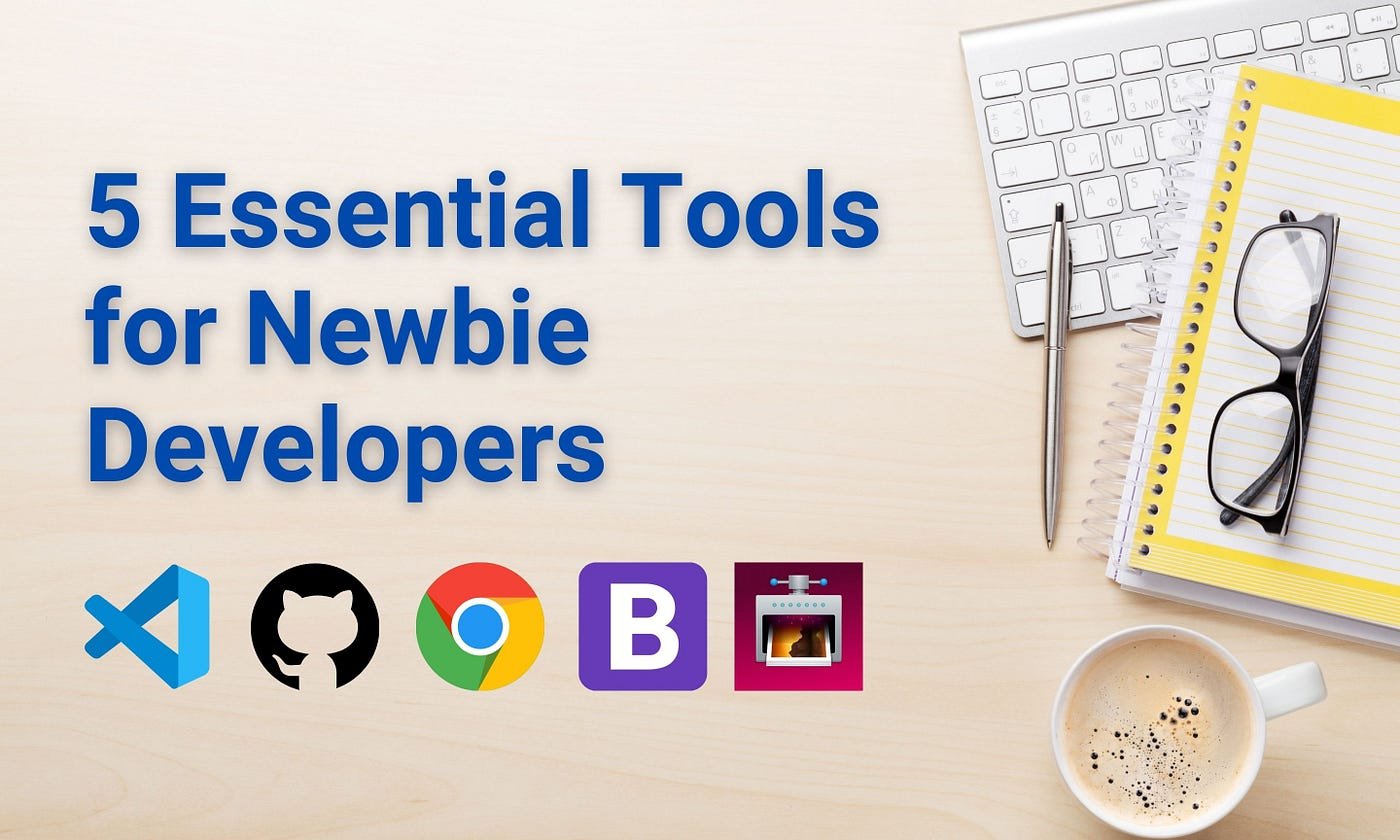In the ever-evolving field of software development, having the right tools can significantly enhance productivity, streamline workflows, and improve code quality. Here’s a comprehensive guide to essential tools every developer should consider incorporating into their toolkit.

Integrated Development Environments (IDEs)
IDEs are crucial for coding, offering a comprehensive environment for writing, debugging, and managing code. They typically include code editors, compilers, and debuggers.
Popular IDEs
- Visual Studio Code: Known for its flexibility, extensive extensions, and support for multiple programming languages.
- JetBrains IntelliJ IDEA: A powerful IDE for Java and other JVM languages, offering robust features for code analysis and refactoring.
- Eclipse: A versatile IDE with strong support for Java and other languages through plugins.
Key Features
- Code Autocompletion: Helps write code faster and with fewer errors.
- Integrated Debugging: Provides tools for testing and debugging code within the same environment.
- Version Control Integration: Often includes built-in support for version control systems.
Version Control Systems
Version control systems are essential for managing changes to code and collaborating with other developers. They help track revisions and manage different versions of codebases.
Popular Systems
- Git: A distributed version control system that tracks changes and supports branching and merging. Popular platforms include GitHub, GitLab, and Bitbucket.
- Subversion (SVN): A centralized version control system that offers a different approach to managing changes compared to Git.
Key Features
- Branching and Merging: Facilitates parallel development and integration of changes.
- History Tracking: Keeps a record of changes and allows reverting to previous versions.
- Collaboration: Enables multiple developers to work on the same project simultaneously.
Code Editors
While IDEs offer extensive features, lightweight code editors are often preferred for quick edits and simpler projects. They are fast, customizable, and can be tailored to specific needs.
Popular Editors
- Sublime Text: A fast and customizable editor with a range of plugins and packages.
- Atom: An open-source editor from GitHub with extensive customization options and integration capabilities.
- Notepad++: A simple and lightweight editor with support for multiple programming languages.
Key Features
- Syntax Highlighting: Enhances readability by coloring code based on its syntax.
- Customization: Allows users to customize the editor’s appearance and functionality through plugins and themes.
- Performance: Provides a responsive and quick environment for editing code.
Debugging Tools
Effective debugging tools are vital for identifying and fixing issues in code. They help trace errors and understand code execution.
Popular Tools
- Chrome DevTools: Integrated into Google Chrome, it provides powerful debugging features for web development.
- GDB (GNU Debugger): A debugger for programs written in languages like C and C++, offering detailed debugging capabilities.
- Xdebug: A PHP extension that provides debugging and profiling capabilities for PHP applications.
Key Features
- Breakpoints: Allows pausing execution at specific points to inspect code and variables.
- Step Through Code: Enables stepping through code line by line to analyze behavior.
- Variable Inspection: Provides visibility into the values of variables during execution.
Collaboration Tools
Effective collaboration tools facilitate communication and coordination among team members, especially in distributed teams.
Popular Tools
- Slack: A messaging platform for team communication with channels, direct messaging, and integration with other tools.
- Microsoft Teams: Offers chat, video conferencing, and integration with Office 365 applications.
- Trello: A visual project management tool that helps organize tasks and track progress using boards and cards.
Key Features
- Real-Time Communication: Enables instant messaging and video calls for seamless collaboration.
- Task Management: Provides tools for assigning tasks, tracking progress, and managing deadlines.
- Integration: Supports integration with other development and productivity tools.
Continuous Integration/Continuous Deployment (CI/CD) Tools
CI/CD tools automate the process of integrating code changes and deploying applications, improving the efficiency and reliability of software delivery.
Popular Tools
- Jenkins: An open-source automation server that supports building, testing, and deploying applications.
- CircleCI: A cloud-based CI/CD tool that integrates with GitHub and Bitbucket for automated builds and deployments.
- Travis CI: A CI/CD service that provides automated testing and deployment for open-source projects.
Key Features
- Automated Builds: Automatically builds and tests code changes to ensure stability.
- Deployment Automation: Facilitates automated deployment to various environments.
- Integration with Version Control: Connects with version control systems to trigger builds and tests on code changes.
Database Management Tools
Database management tools help developers interact with and manage databases, ensuring data integrity and efficiency.
Popular Tools
- MySQL Workbench: Provides a graphical interface for designing, managing, and administering MySQL databases.
- pgAdmin: A management tool for PostgreSQL databases with features for querying and managing database objects.
- DBeaver: A universal database tool that supports multiple database platforms and offers a range of features for database management.
Key Features
- Database Design: Tools for designing and visualizing database schemas.
- Query Execution: Provides interfaces for executing SQL queries and managing data.
- Data Management: Offers features for importing, exporting, and managing database data.
Conclusion
Incorporating the right tools into your development workflow can significantly enhance productivity, code quality, and collaboration. Integrated Development Environments (IDEs), version control systems, code editors, debugging tools, collaboration tools, CI/CD tools, and database management tools are all essential for modern software development. By leveraging these tools effectively, developers can streamline their processes and create high-quality software solutions.
